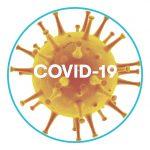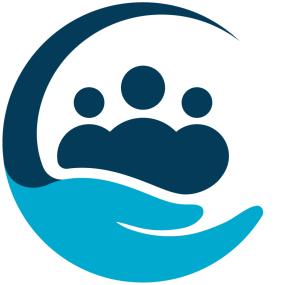5 Things I wish I’d known before COVID…. (pt. 5)

COVID-19 has presented challenges unlike anything we have faced before. In this blog, colleagues share their experiences by describing five things they wish they had known.

Critical Care Dietitian at St Georges Hospital London and Chair of the BDA Critical Care Specialist Group (CCSG).
Devised a national training package for dietitians new to ICU.
A national training packing was in the planning; then boom, the pandemic hit and the need to quickly upskill those dietitians re-deployed to ICU became a reality. Within a matter of weeks local training plans were developed and these shared nationally. As a dietetic community we pulled together and supported each other in the training of our colleagues. If only we’d had this ready to go beforehand. But the materials are not wasted and when things return to normal we can now develop our tried and tested national training programme.
How many nutritional challenges these patients would pose. Many of these patients experience the same nutritional challenges, individually troublesome but combined, make some pretty nutritionally complex patients. Much of my time is spent supporting those dietitians redeployed to work in ICU who had never heard of propofol calories before, let alone be familiar with the challenges associated with enterally feeding a patient in the prone position, when all the feeding pumps were used up. We’re dealing with excessive propofol calories (up to 1000kcals / day), erratic glycaemic control, fluid restrictions preventing full nutrition targets being delivered and resultant elevated electrolytes. To add more headaches, approximately 75% of patients have a BMI > 25. Determining energy and protein needs in this group of patients is probably one of the most contentious and non-evidenced area of ICU nutrition support.
Remote working doesn’t work for ICU dietitians. Due to the shortage of PPE, dietitians were one of the first professions told to stay away and review patients remotely. Although we completely understood the rationale, it’s frustrating as remote reviews are pretty much impossible without access to the bedside observations. Even in those units lucky enough to have electronic notes, details recorded aren’t specific enough for us to properly assess, provide treatment plans and review effectiveness. You wouldn’t believe the amount of times we didn’t have a weight or height documented (the cornerstone to everything we do). How can we determine energy and protein needs and formulate safe feeding plans without a weight or BMI? After weeks of struggles working remotely and arguing the case for being allowed PPE, we demonstrated it was essential to be on ICUs, to safely provide patient care. This way we can really determine if the type and rate of feeding is really what the patient should be on, gain the essential weight and heights and see if the GI intolerance that has kept the feed off for days is really a thing. Dietitians need to be there as part of the team, treating our patients and communicating daily with the ICU doctors and nurses.
I’m not invincible. Working in a large teaching hospital in South London, we were one of the first hospitals to be impacted by the rapidly increasing numbers of ICU patients. Suddenly my caseload had quadrupled, I was involved in upskilling of local non-ICU dietitians and Chair of the CCSG. Feeding ICU patients quickly became a national agenda item; opinions needed 24/7 and guidelines to be written like yesterday. My input was required in a million places at once and I had to stay on top of my game, when clinically things were escalating to levels never seen before. I wanted to use all the opportunities available to showcase the role dietitians play in acute care and recovery but couldn’t keep this pace up. It eventually caught up with me and I had to admit how exhausted I was and needed a break. I appreciate how important it is to switch off the emails and Twitter once in a while to protect my wellbeing.
Just how amazing the BDA Critical Care Specialist Group (CCSG) is! I’ve always known this but I’ve been blown away by the responsiveness and generosity of the CCSG dietitians. Everyone has made an outstanding contribution to the COVID-19 response going over and above their day to day jobs, working tirelessly at weekends and evenings to ensure resources are shared nationally and guidelines created promptly. Within 4 weeks we authored Guidance on management of nutrition and dietetic services during the COVID-19 pandemic ; COVID-19 Best Practice Guidance: Enteral Feeding in the Prone Position; Best Practice Guidance: Bolus Enteral Feeding.

Medical Student, graduated early supporting the contingency plans of the NHS against COVID-19.
As the pandemic hit, I graduated from medical school 3 months early, in what is infamously known as the “Covid Cohort”. The plan was for us to start work as doctors early to support the contingency planning of the NHS. That hasn’t quite gone to plan for me (different trusts have had different requirements for FiY1s; mine currently has me on standby!) but fortunately, I’ve been able to contribute in a different way. My local trust has employed final year students and recent graduates as critical care nursing support workers. We help out as patient to ICU nurse ratios get stretched beyond their usual 1:1.
ICU care is defined by the people who provide it much more than the equipment. When I rotated through ICU during medical school, my experience was very doctor centric: I learnt the basics of organ support, common pathophysiology, vasopressors etc. But it’s only through working within the unit that I’ve fully understood the breadth of incredible professionals it takes to care for a patient. I have spent the vast majority of my time with critical care nurses, who have taught me the real bread and butter of ICU. You quickly learn that excellent ICU care is strongly correlated with excellent critical care nursing. There are also invaluable inputs from physiotherapists, speech and language therapists, pharmacists; the list goes on. I have no doubt I’ll be a better doctor for the experience.
The emotional toll of the pandemic affects even the most experienced critical care staff. The burden is tough on everyone and even the most seasoned ICU staff are not immune. One tough shift was a wake-up call for me: after a degree of navel-gazing, I debriefed with my supervising nurse. It brought home that this is not normal by any stretch of imagination and everyone is feeling the strain in some capacity. Everyone has their own coping strategies; I’ve seen humour (TikTok, who knew?!), quiet cups of tea, verbal debriefs. Whatever they are, everyone is leaning hard on those strategies at the moment.
Community support has been an invisible, invaluable crutch. Speaking of coping strategies, support from local businesses and communities has been invaluable for staff. We’ve had food donations, messages of support and even a massage gun(!) for ailing limbs. It puts a huge smile on everyone’s faces to see the daily food delivery rocking up at lunchtime, and does so much for morale. I might be a touch biased; I could eat Indian food all every day and still never get bored…
When communicating with families, time and space can be the most powerful tools. Critical care discussions are tough enough at the best of times. Doing it through a mask, with no visiting hours and terrified families makes even simple daily updates take on a different complexion. Giving time and space on a phone call has helped me enormously, as well as giving relatives a chance to digest what is happening. I’ll be honest, I never quite expected this to be the first professional application of all those university communication sessions!
Despite the chaos, ICU has so much to offer as an educational experience. One of the things that has staggered me has been the patience of every member of staff to teach a novice the tricks of the trade. The learning curve has been incredibly steep, but enjoyable. Additionally, with the redeployment of doctors from across the specialty spectrum, there have been great learning opportunities for my future medical career. There has been a steady stream of advice about tips for my (semi) imminent F1 as well as titbits of knowledge for the aspiring intensivist in me. All in all, it’s been quite an experience.

Consultant in ICU, Western General Hospital, Edinburgh and Chair of FICM Sub-committee, WICM.
2020 wasn’t really meant to be a standout year for me – no big birthdays, no massive changes at work or home. Just a normal year full of the normal ups and downs of normal life…
A team can pull together in a really short period and effect huge change…and of course, SARS CoV-2 changed all of that. We all heard about it in January, and I am sure I am not the only person to think it just wouldn’t get here, and we would have lots of meetings and training sessions on donning and doffing and lots of protocol writing and then nothing would actually happen. We had our first COVID-19 admission in the second week of March and got steadily busier through till the end of April. Right now, we are in the lull before either a gradual ‘summer simmer” or a second big wave. In the two weeks from our first unit planning meeting, we achieved so much in such a short period. We had to make plans for surge capacity, for a ‘green’ ICU, for safe CT scan transfer, for line insertion in PPE…the number of protocols that needed to be written seemed endless. We needed to train medical and nursing staff deployed to ICU. These staff all had skills that were complementary to critical care but still, to cross skill in such circumstances was a real challenge. This period was really pretty stressful but was a true example of brilliant teamwork from every staff group #TeamICU at its best.
Change is unsettling and anticipatory anxiety is real. The two-week period between beginning our planning, and really getting into the swing of things was for me the worst part of my own COVID-19 experience. I was finding it hard to sleep and actually found being away from work more stressful than being at work, which has never ever been a problem for me before. Anticipatory anxiety, not knowing what was coming and how badly we would be affected, was far more unsettling than actually dealing with the patients when they actually started to fill the ICU.
Take limited doses of ‘poor me’ at work. We were working hard, in full PPE, caring for really sick patients and trying to keep their families as informed as possible. Other groups of clinicians were not able to do their usual clinical work. It is very easy to feel a bit resentful at this but phoning up dozens of patients to say their treatment is going to be delayed for an indefinite period of time is stressful work too. It’s easy to be ‘poor me, no one is working harder than I am’ but it’s probably not accurate or helpful!
People are really kind. This applied to people in and out of work, Our ICU team is such a brilliant group of kind, motivated, people and we have supported each other through this. I’ve been blown away at the patients and the families who have asked after us and our wellbeing – despite everything that they are going through.
What I think 2020 is going to be like. I have no idea what things are going to be like in the next fortnight, never mind the next couple of months! I have no idea when I can safely see my family again, when my daughter will go back to school – 2020 is going to be the stand out year I never expected. But it’s a standout for lots of good reasons too. We got to look after more patients with severe ARDS in a month than we would get in a year – our team can now prone in minutes – and we have gained really valuable clinical experience for the future. We have demonstrated that we can effect change quickly and we can work together as a team and support each other in the face of unprecedented circumstances. Who knows what’s to come for the rest of 2020 – but here’s to your #TeamICU and best of luck with whatever the rest of the year brings!
Related Content
Written by: Ollie Cohen, Hannah Grafton-Waters, Greg Barton
Written by: Zoe Brummel, Andy Breen, Peter Shirley
Written by: Jack Parry Jones, Nicki Credland, Guy Parsons

